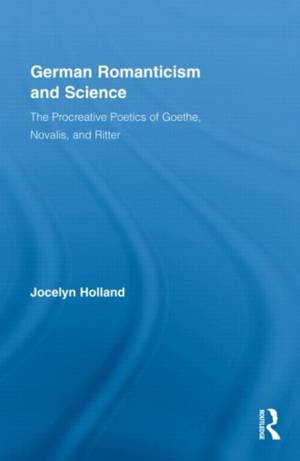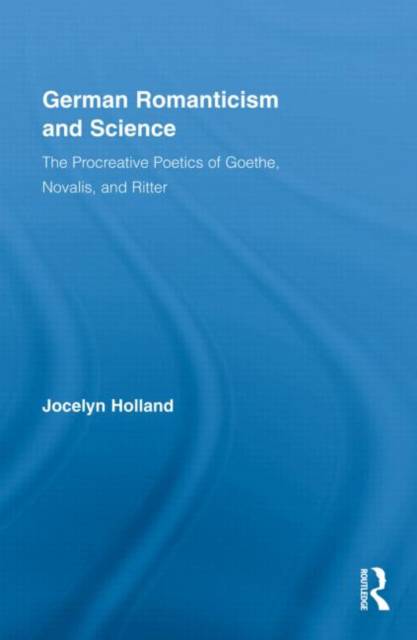
- Afhalen na 1 uur in een winkel met voorraad
- Gratis thuislevering in België vanaf € 30
- Ruim aanbod met 7 miljoen producten
- Afhalen na 1 uur in een winkel met voorraad
- Gratis thuislevering in België vanaf € 30
- Ruim aanbod met 7 miljoen producten
Zoeken
German Romanticism and Science
The Procreative Poetics of Goethe, Novalis, and Ritter
Jocelyn Holland
€ 305,45
+ 610 punten
Uitvoering
Omschrijving
Situated at the intersection of literature and science, Holland's study draws upon a diverse corpus of literary and scientific texts which testify to a cultural fascination with procreation around 1800. Through readings which range from Goethe's writing on metamorphosis to Novalis's aphorisms and novels and Ritter's Fragments from the Estate of a Young Physicist, Holland proposes that each author contributes to a scientifically-informed poetics of procreation. Rather than subscribing to a single biological theory (such as epigenesis or preformation), these authors take their inspiration from a wide inventory of procreative motifs and imagery.
Specificaties
Betrokkenen
- Auteur(s):
- Uitgeverij:
Inhoud
- Aantal bladzijden:
- 232
- Taal:
- Engels
- Reeks:
Eigenschappen
- Productcode (EAN):
- 9780415993265
- Verschijningsdatum:
- 2/04/2009
- Uitvoering:
- Hardcover
- Formaat:
- Genaaid
- Afmetingen:
- 152 mm x 229 mm
- Gewicht:
- 480 g

Alleen bij Standaard Boekhandel
+ 610 punten op je klantenkaart van Standaard Boekhandel
Beoordelingen
We publiceren alleen reviews die voldoen aan de voorwaarden voor reviews. Bekijk onze voorwaarden voor reviews.








